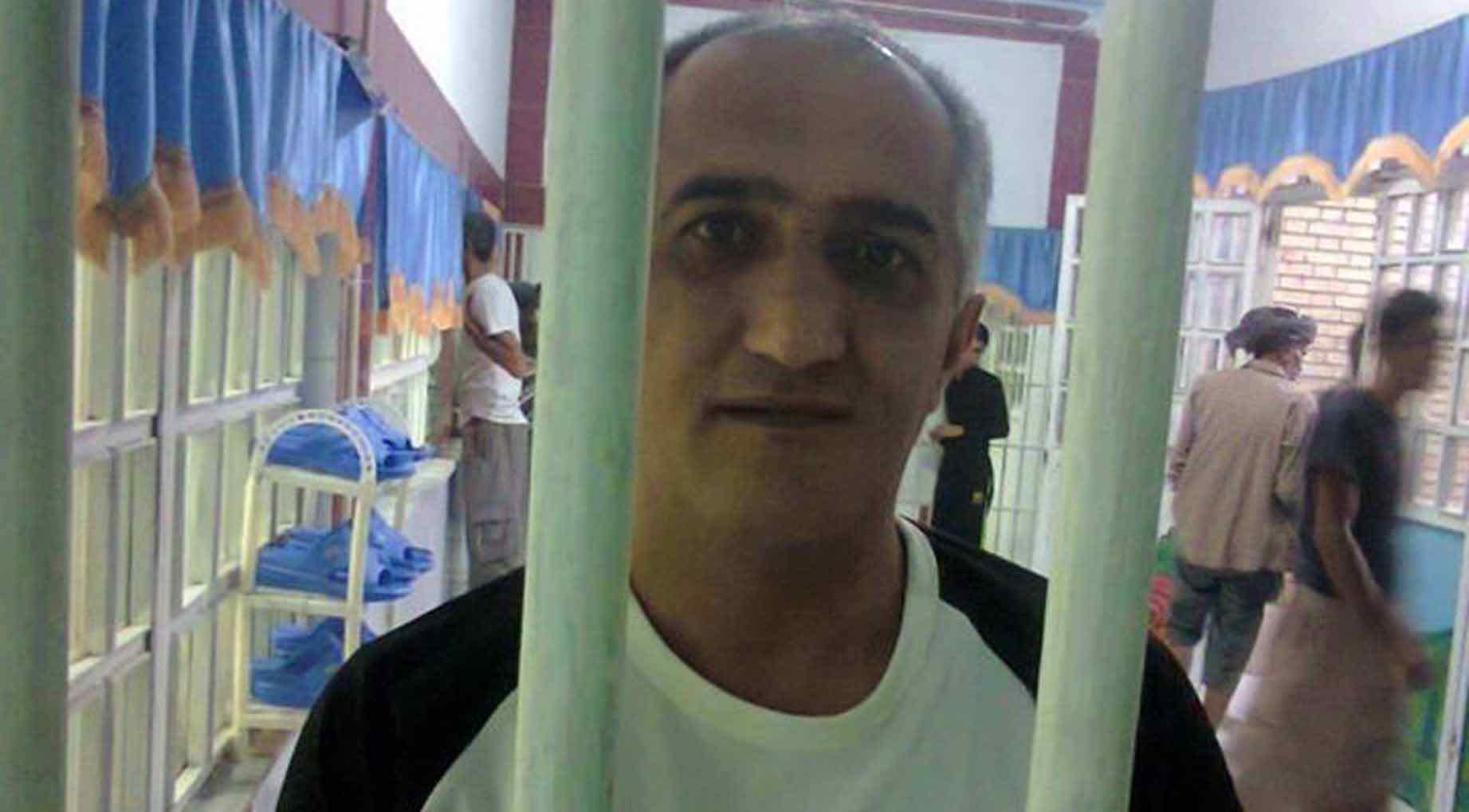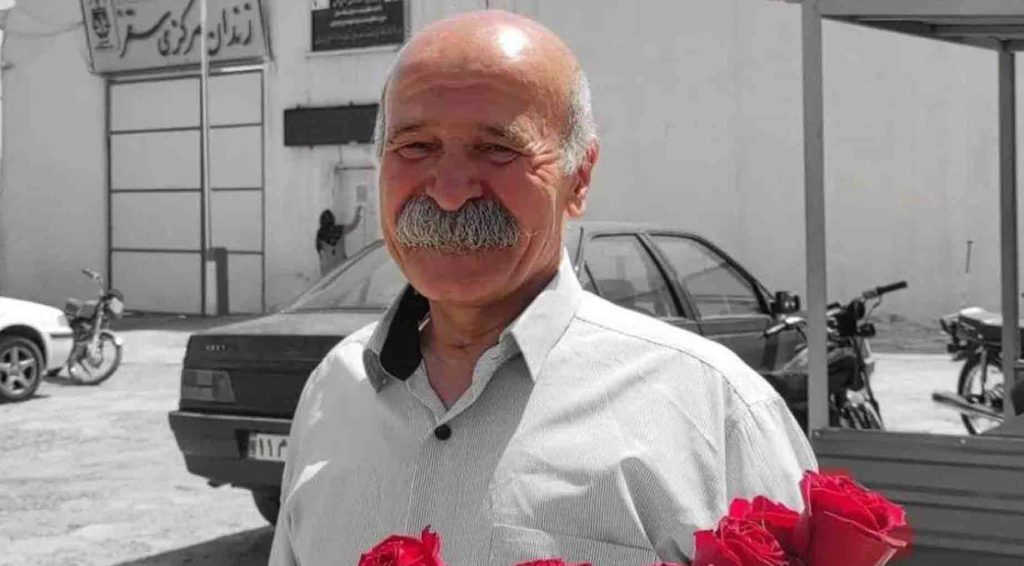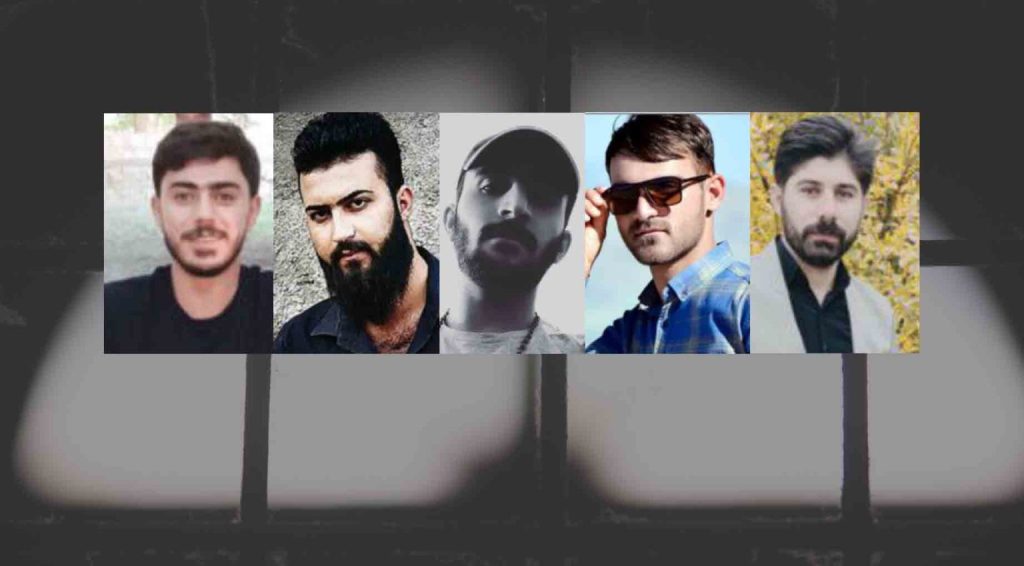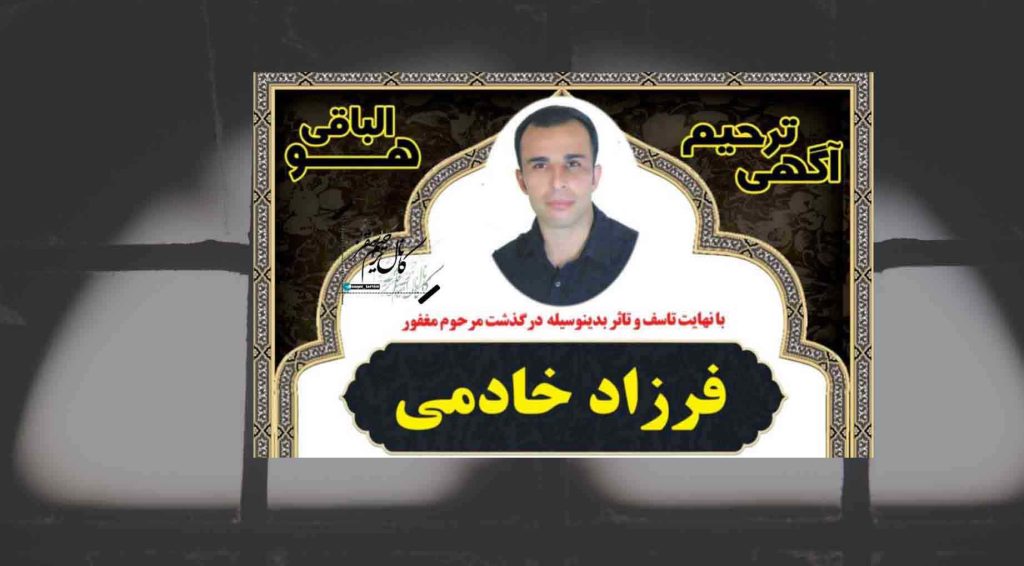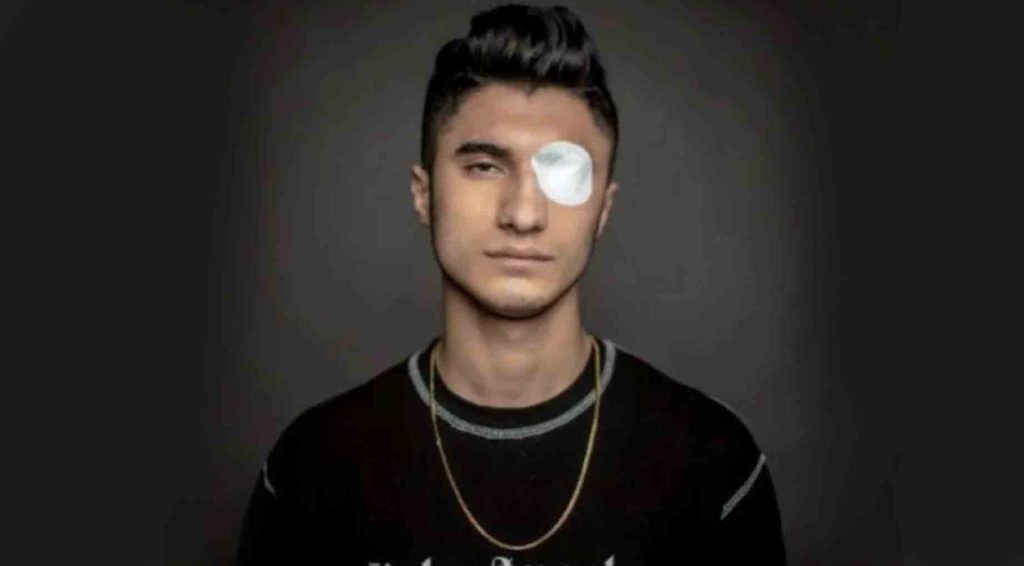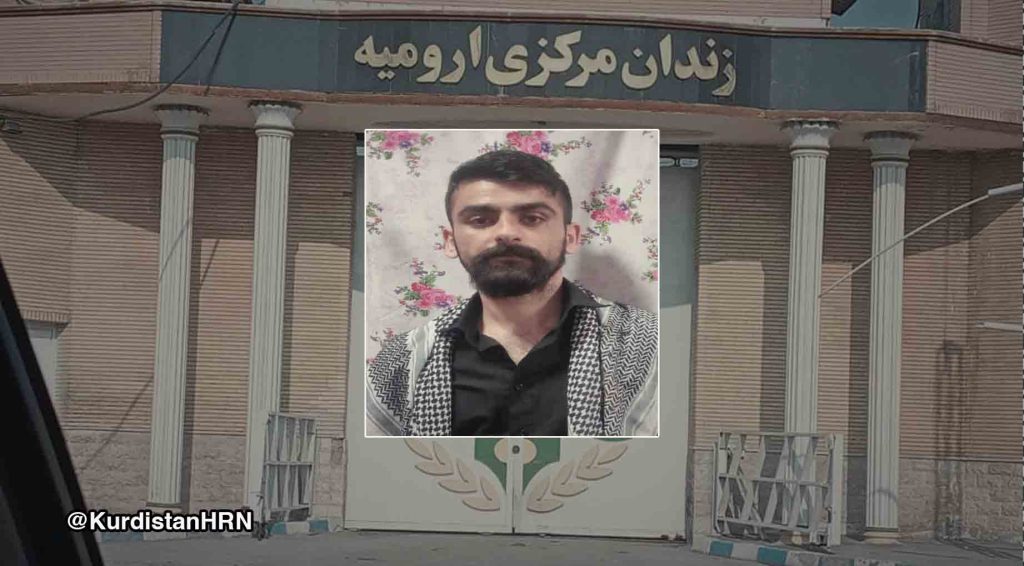Kurdish political prisoner Kamal Sharifi is now in his 16th year of a 30-year sentence in Minab Prison in Hormozgan Province.
Despite battling various health problems acquired during his imprisonment, Sharifi has been consistently denied temporary leave and conditional release.
Throughout his lengthy imprisonment, Sharifi has only been allowed one family visit.
His health has been a major concern, and he has suffered two major health crises in prison – a stroke and a heart attack – in 2012 and 2020 respectively. On both occasions, Sharifi was returned to prison without completing his medical treatment.
In a letter published in April 2021, Sharifi detailed his plight: “For 13 years, I have submitted more than 20 written requests for leave to the prosecutor, the head of the judiciary, and judicial officials in Hormozgan and Kurdistan provinces. All have gone unanswered.”
Sharifi continued: “After suffering a stroke, the effects of which are still visible on my face, I suffered a heart attack on 2 March [2021]. After undergoing angioplasty, I was returned to the same cell and room as before. For 13 years I have had to put up with a digestive disorder, the poor quality of prison food and the smell of opium and cannabis smoke”.
Background
Sharifi, a member of the Democratic Party of Iranian Kurdistan (PDKI) from Saqqez, Kurdistan Province, was arrested by the Ministry of Intelligence on 25 May 2008 while he was conducting organisational activities in Saqqez with another party member. His companion was killed during the arrest by security forces.
He was interrogated for six months in the Ministry’s detention centre in Sanandaj on charges of “membership of the Democratic Party of Iranian Kurdistan” and subjected to physical and psychological torture to extract forced confessions.
On 10 November 2008, Branch One of the Islamic Revolutionary Court of Saqqez, presided over by Judge Shayegh, sentenced Sharifi to 30 years’ imprisonment and exile in Minab Prison on charges of “enmity against God” (moharebeh) through an “armed uprising” against the Islamic government and membership of the Democratic Party of Iranian Kurdistan, citing Articles 186 and 190 of the Iranian Islamic Penal Code.
According to the indictment, a copy of which was obtained by KHRN, the political prisoner ” does not have the right to socialise and communicate with others during his sentence, is denied the benefits of meeting and corresponding with others, and must spend his entire sentence in prison”.
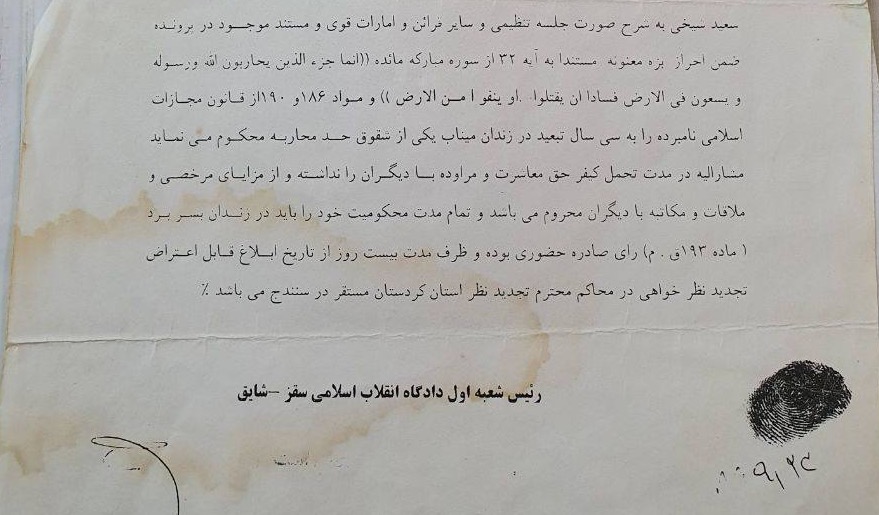
In August 2011, Sharifi went on hunger strike in protest against his harsh conditions in Minab prison and ended his hunger strike on the 48th day after meeting with his family. Since his arrest, this has been the only time he has been able to meet with his family.
Amnesty International, in a letter addressed to the head of the judiciary of the Islamic Republic of Iran in February 2022, warned about Sharifi’s physical condition and the danger to his life, calling for his immediate release.
The human rights organisation emphasised that the Kurdish political prisoner, due to “deliberate and prolonged deprivation” of access to essential and specialised medical services for his heart condition and other diseases he is grappling with, including digestive disease, joint pain, and gum atrophy, is facing irreparable damage.

